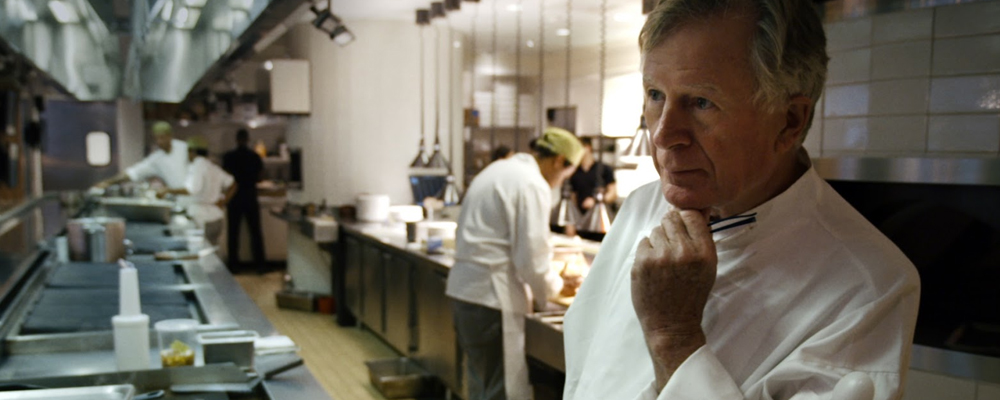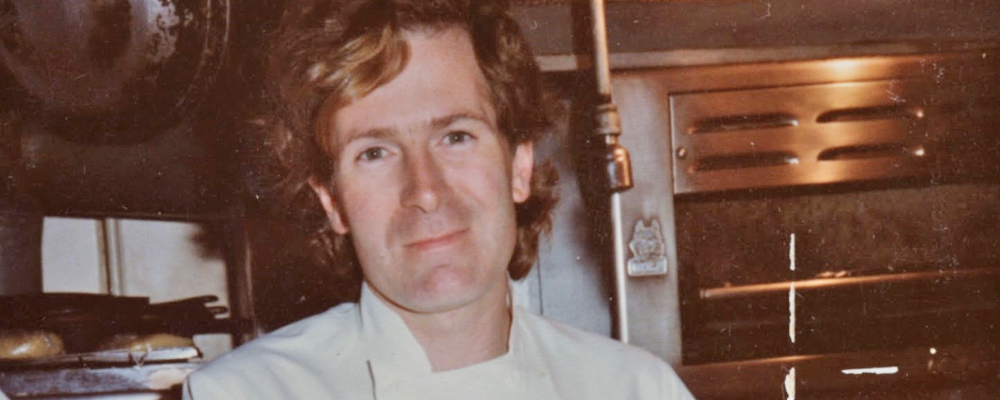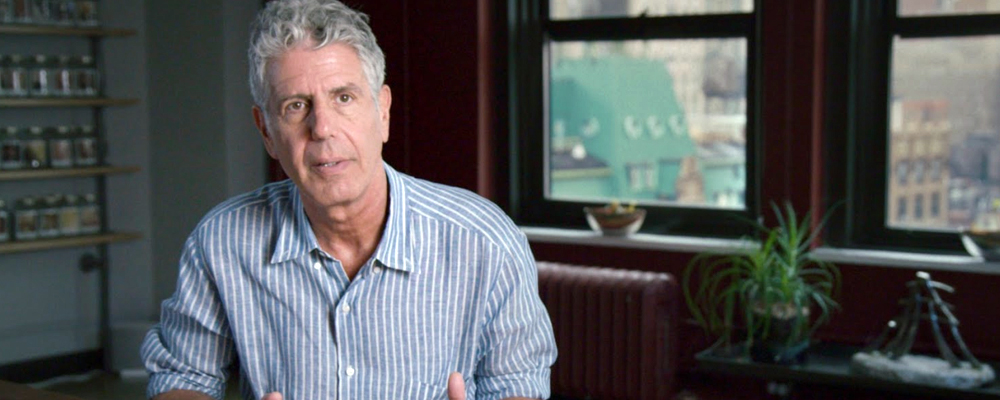Culinary Legend Jeremiah Tower Dishes on His Documentary ‘The Last Magnificent’ and Bridging the Old and New World
Patrick Regan
For years, Jeremiah Tower was the name in cuisine. In fact, it might be argued he was the first name in ‘celebrity’ cuisine. Being a colleague of giants like James Beard and Alice Waters, and mentor to modern-day greats like Mario Batali, Jeremiah Tower was in many ways the first celebrity chef. His work at Chez Panisse catapulted his first restaurant, Stars, into an international sensation.
And then, he vanished from the scene. In “Jeremiah Tower: The Last Magnificent,” director Lydia Tenaglia and executive producer Anthony Bourdain dive into this great man’s life and examine what made him, as Bourdain puts it, the J.D. Salinger of the culinary world. They trace his upbringing from the first class dining of yesteryear to the modern world of local ingredients that he pioneered.
Of course, there’s a striking difference between Jeremiah Tower and J.D. Salinger. Both are notorious for vanishing from the food world, yes, but Jeremiah Tower is still happy to talk. Aside from interviews with Bourdain, Batali, Wolfgang Puck, and other friends and family, Tenaglia frequently uses Tower himself to bridge the narrative.
What one walks away from this with is less a mystery (his reasons for walking away are stated fairly plainly) but a portrait of a man and a time. Tower is a transitional figure – the link between the old world of hospitality and the new world of celebrity. He sat down to talk with Entertainment Voice about his work and that link.
Who came to you first with the idea for this film, and what made you say yes?
I can’t remember if it was Lydia Tenaglia or whether it was Anthony Bourdain, but I recall that I spoke with Lydia in San Francisco to do an interview to CNN and see if they’re interested. But you know both of them are hard to refuse.
Speaking of Anthony Bourdain, he identifies you in the film as the link between the old world of dining and service and the new world of the celebrity chef. What do you think of that?
I was thinking about that after I saw the film. My life up to that point until I became a chef was a training ground. I had what I called bench marks of the most perfect hospitality the world had to offer on those ships and hotels, and the best food and ingredients. And it really was how things were done, the classic food in various countries. I was being in trained in that, although I didn’t know it at the time. So when I came to join this world, I knew what the style of the hospitality and the taste of the ingredients should be.
And how do you feel about being described as that bridge figure?
It makes me feel old! I am seventy-five years old, so there just aren’t that many people around in the culinary world that are that old that are still active. Possibly Jacque Pepin, but there aren’t that many others left.
It’s an interesting thought. On the subject of the old world service, is there anything you think the world misses out on now for not having?
No, because it was such a privileged world, and there were so few people involved it that I think it has meaning today. Still, if I was on a truly great ship, with my feet wrapped and the perfect cup of consommé, as you saw reenacted in the film, well, there’s nothing wrong with that. Good first class is still a wonderful thing.
What is it in today’s cuisine that makes you excited?
I think it’s very exciting that the ingredients are still the moving force and that’s what everyone is still focusing on. Whether you call it farm-to-table or whatever, that realization that to be a great restaurant you need wonderful ingredients, not chic ingredients. In the old days, to be a great restaurant in San Francisco you needed fois gras. Well, that meant it came out of a can, and it was pretty awful stuff. If you had dover sole it had to be frozen. So at least that focus has remained.
The idea of a focus on fresh ingredients has migrated from restaurants into home kitchens. Did you ever imagine it would make that migration?
Looking back on it all, it’s almost impossible for someone who wasn’t there to look back at that and think we didn’t know what we were doing. But in actuality, we were just trying to find wonderful ingredients, fill the restaurant, pay the bills. There really wasn’t any feeling of “look at the importance of this thing I’m doing!” It was just every day trying to fill up Chez Panisse and pay the bills. And I didn’t know how to cook with anything else because I never had. Very fortunately, because I grew up in England after the war, and the only food was the stuff from down the road.
You have a book coming out this year, “The Flavors of Taste.” What can you tell us about that?
Oh, that. Well, I haven’t finished that yet. That’ll be this year, but I’m not sure when exactly. We’re going to e-publish it, but I have to go back to New Orleans and finish three or four photographs.
What are you working on now?
I’m working with Ti Martin to put the finishing touches on his hospitality school. It’s called NOCHI (New Orleans Culinary Hospitality Institute). It’s been on-and-off for a long time; Ti has this great idea that it shouldn’t be a cooking school. It should be a hospitality school, which is the main industry in New Orleans.
What does hospitality include to you?
I was talking to Ti a few weeks ago in New Orleans – I would like to teach what I know from the benchmarks that I grew up in and still believe. I’m going to tell you a negative of one of the most famous and most boutique hotels in San Francisco. I walked in the other day, and the rooms are five hundred dollars or something, and the doorman was on his cell phone. That’s okay; I don’t mind, I can open my own doors. But I walked past the concierge, and he was on his phone and never looked up. I thought “Right, well, I’m going to test this.” I walked past the reception, and there were two people there looking at their phones. Never looked up.
I walked into the dining room, which used to be one of the best in San Francisco, and there were some waiters down at the end talking to each other. Never looked up. I thought, “Wow, I wish I had filmed that.” You could use it as a course – start the first day teaching a course on hospitality. What not to do.
The sin was not the sin of the phone, but the sin of not paying attention to the customer.
I think if you can train that, you’ve trained everything – because they’re paying attention to everything. Hospitality, ultimately, is about the other person; it’s not about you.
“Jeremiah Tower: The Last Magnificent” opens April 21.



